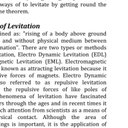Epoxyazadiradione suppresses breast tumor growth through mitochondrial depolarization and caspase-dependent apoptosis by targeting PI3K/Akt pathway.
Palavras-chave
Resumo
Breast cancer is one of the most commonly diagnosed invasive cancers among women around the world. Among several subtypes, triple negative breast cancer (TNBC) is highly aggressive and chemoresistant. Treatment of TNBC patients has been challenging due to heterogeneity and devoid of well-defined molecular targets. Thus, identification of novel effective and selective agents against TNBC is essential.
We used epoxyazadiradione to assess the cell viability, mitochondrial potential, ROS level, cell migration, apoptosis and protein expression in cell culture models of TNBC MDA-MB-231 and ER+ MCF-7 breast cancer cells. The molecular mechanism was examined in two different type of breast cancer cells in response to epoxyazadiradione. We have also analyzed the effect of epoxyazadiradione on breast tumor growth using in vivo mice model.
In this study, we for the first time investigated that out of 10 major limonoids isolated from Azadirachta indica, epoxyazadiradione exhibits most potent anti-cancer activity in both TNBC and ER+ breast cancer cells. Epoxyazadiradione induces apoptosis and inhibits PI3K/Akt-mediated mitochondrial potential, cell viability, migration and angiogenesis. It also inhibits the expression of pro-angiogenic and pro-metastatic genes such as Cox2, OPN, VEGF and MMP-9 in these cells. Furthermore, epoxyazadiradione attenuates PI3K/Akt-mediated AP-1 activation. Our in vivo data revealed that epoxyazadiradione suppresses breast tumor growth and angiogenesis in orthotopic NOD/SCID mice model.
Our findings demonstrate that epoxyazadiradione inhibits PI3K/Akt-dependent mitochondrial depolarisation, induces apoptosis and attenuates cell migration, angiogenesis and breast tumor growth suggesting that this compound may act as a potent therapeutic agent for the management of breast cancer.



